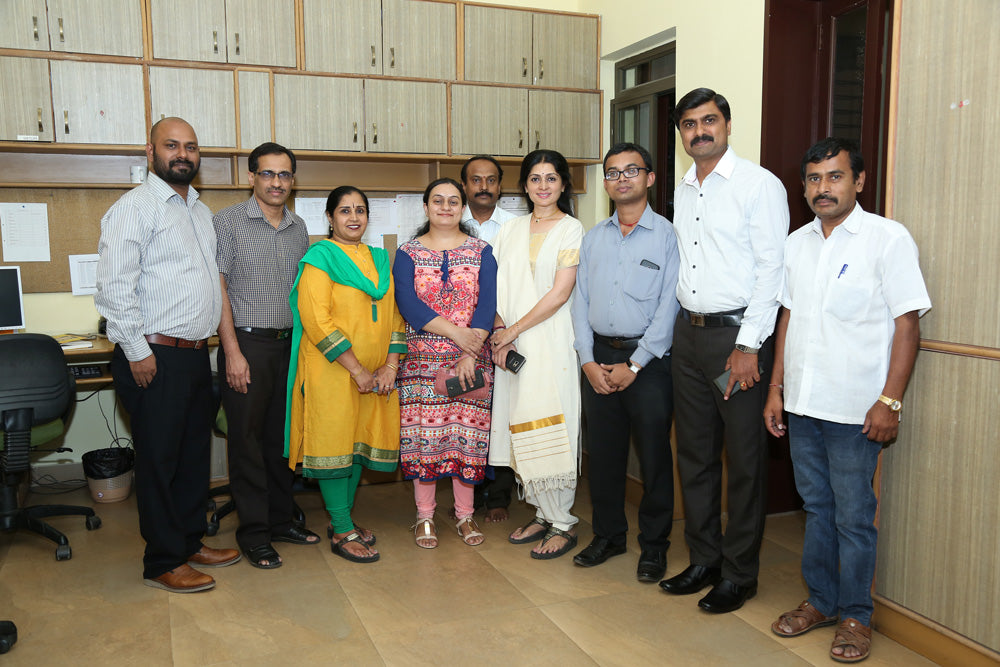
+91 80 41281 383 • Srinivasam, No. 20, 9th Cross, 6th Main, Malleshwaram, Bengaluru

HELD ON: Saturday 8th April 2017
VENUE: The Sinhasi Office, Malleswaram, Bangalore
In 2014, Sinhasi’s aim was to get all our esteemed clients and investors together with top fund managers, industry leaders and thought leaders to talk about important aspects about markets, economy and global factors which impacts clients and their investments. This aim gave birth to the Sinhasi Intelligent Investing Forum series.
SIIF – 1, held in April 2014 couple of months before the General elections, was much appreciated by our clients and we had Mr. Prashant Jain (ED & CIO – HDFC Mutual Fund) speak about the economy and markets, his teacher at IIM , Prof Vaidhyanathan, , Head Finance IIM – B speak about India Un-incorporated or the unorganized sector of India which contributed to more than 60% of India’s GDP, and, Mr. Mohan Das Pai Chairman, Manipal Global Education Services, Bangalore, speak about India the next 10 trillion dollar economy by 2020.
SIIF – 2 was organized in the year February 2015 before the much awaited first BJP Budget, where Mr. Prashant Jain (ED & CIO – HDFC Mutual Fund), Mr. Charandeep Singh (Founder and MD, Girik Capital) and Mr. V Balakrishnan (Partner & Chairman, Exfinity venture Partners, and ex-CFO Infosys Ltd.) were the key speakers.
SIIF – 3, organized in Jan 2016 had an exciting panel of Mrs. Kiran Mazumdar Shaw (Chairman & MD-Biocon Ltd), Mr. Sunil Alagh (SKA Advisors – Mumbai), Mr. Sandeep Maini (Maini Group) and Mr. Dhyan Chinnappa – senior legal counsel along with leading Fund Managers where the conversations were about manufacturing industry and the capital markets, how fund managers can participate and promote manufacturing industries of India.
The purpose of these forums is to have experts speak about several important aspects of the economy and the investment environment which impacts each one of us as individual investors.
Sinhasi has a very simple mission and a goal which is very clear, and that is to develop very deep and trusted relationships and to ensure that the clients feel on top of their game when it comes to their money and investments through Sinhasi’s advice, monitoring, and execution skills. This is done keeping in mind two very fundamental facts in place – Keeping it Simple and with extreme Discipline. Sinhasi understands the importance of being SEBI complaint and Sinhasi is a corporate Registered Investment Advisor effective February, 2016. There are only 170 Corporate Registered Investment Advisors in India as of March 2017, which is indeed a very low number. Another aspect that Sinhasi focuses on is Financial Literacy which Sinhasi believes should be across the board be it HNI or retail, it crosses gender, class, and age. Sinhasi has been conducting several Financial Literacy and Financial empowerment workshops especially for women. Sinhasi also did a survey on Financial Literacy in October, 2016. One of the important takeaways which came as a result of Survey was that Gen Y (age group between 18 and 35), considers money as something that one requires only as a necessity like building a house, education, and basic livelihood and not as disciplined investment program one should have in the form of an investment plan. One more key takeaway was that even working, salaried and empowered women turn to their male counterpart like a father, brother, husband etcfor financial decision-making an land up learning about money only during a challenging situation like death or divorce. Sinhasi has also started writing lots of articles on Financial Literacy which are carried by both Online and Offline media.
Sinhasi proudly also announced the launch of the SINHASI ONLINE INVESTMENT AND FINANCIAL PLANNING PORTAL at SIIF – 4.
The Last 6 months have been very exciting and amazing for India with the unpredicted Demonitisation, Union Budget and BJP’s landslide victory in the UP Election and lots of global issues with Trump in the USA, China‘s uncertainites and war in the middle east. SIIF – 4 was held with all these issues on the plate for discussion. This time, we had an expert panel of Ace fund manager Mr. Prashant Jain (ED & CIO – HDFC Mutual Fund), Mr. Charandeep Singh (MD – Girik Capital), Mr. Kenneth Andrade (Founder & CIO – Old Bridge Capital, Mumbai) and the panel discussion was moderated by Ms. Mimi Partha Sarathy (MD – Sinhasi Consultants Pvt. Ltd).
Mr. Kenneth Andrade – "Underlying fundamental of investing in Capital markets is investing in businesses and Companies which have growth probability. Lots of events have been happening since the transition of the Government which has brought transparency in ground level work, and over a period of time Corporate India will be in a much better health. International events will have repercussions on Indian markets over a period of time. As long as fundamentals of economy remain right, as long as the fundamentals of the companies which fund managers are picking remain strong, portfolios will compound pretty well. If we take last 12 calendar years, Indian markets gave negative return only twice and for the rest of the years returns were close positive, it has been a great period for equities in India. Every time market gives you an opportunity, it is time to participate in it."
Mr. Prashant Jain – "Equity is a simple asset class and it represents the appreciation/growth of underlying businesses over long period. If you look at Indian economy, in terms of rupee it is growing around 14-15% p.a. over long period with 7-8% being the real growth and balance 5-7% coming from inflation. Sensex, which is the measure of the equity markets has also been compounding at about 15% p.a. since 1979 when it was setup. Sensex has been doubling every 4-5 years in line with the GDP growth. India represents one of the best growing economies in the world because of population growth, young population, growth of nuclear families, increasing income levels. Last 9 years after Lehman crisis in 2008, index has delivered very low returns. In Jan 2008, index was at 21,000 level, today it is 30,000 level, i.e. the CAGR over last 8-9 years has been around 4% p.a. So, market capitalization to GDP of India is quite attractive. Our macro-economic factors are very encouraging and first time in last 20-30 years, our FDI is more than that of Current account deficit, currency is appreciating, interest rates are low, inflation is coming down so economic growth should accelerate. Government is trying to bring more transparency in policy decisions and there is optimism around medium to long term growth potential of equities."
Mr. Charandeep Singh – "There are lots of opportunities in this country. Many small companies and undiscovered entities are available at throw away valuations, many cyclical companies are available at very cheap valuations. One can also look at some special kind of situations like demergers where two businesses gets separated and one of those businesses grows up and creates a lot of value, new IPO’s, and so many more. You should make sure that you are around the right name at the right price. If you find such companies and you stick around for very long term, you will surely get decent returns on your equity investments.
Banking: Outlook for interest rates is unclear and they are expected to be range bound (+/-) and should remain stable. Banks in India should benefit by Demonetization as formal part of the economy should expand and informal part of economy should reduce in size. Businesses are coming under transparency emboldened by Demonitisation. RBI & Govt. will come up with a policy to resolve the asset quality pain and tackle the NPA problem. India is a fast growing economy with high savings rate with well entrenched habits of parking money in Banks. Bad Banks are unlikely to happen. With banking becoming more digital, the ability of the Banks to service clients increases manifold which makes banking a growing Industry.
Telecom: Current development in this sector like Reliance Jio’s entry & Vodafone-idea merger are good for consumers and not investors as the earnings potential seems to be destroyed. However, there could still be an opportunity which might come at throw away prices while de-growth happens.
Agriculture & Rural: Govt. proposal about doubling the farmer’s income (profits) in 5 years down the line seems to be difficult and bringing the efficiency in supply chain may help this. The rural theme in investing is a broad theme and Government’s rural push will enable the Companies focused on rural economy to generate more alpha.
Mr. Prashant Jain – "There should be no gender discrimination on money matters, it mostly depends upon person’s interest. Financial Literacy should be made a part of curriculum in Graduation. Everyone should be financially literate as it is very simple. It makes a huge difference when you know few basics."
Mr. Charandeep Singh – "Men and women are same when it comes to financial literacy. With very little basic training it is very easy to incorporate financial discipline in one’s life."
Mr. Kenneth Andrade – "Women are much more diligent and are far more disciplined, and can put things together in a much better manner than any male counterpart. It is not difficult for women to understand finance and financial planning. It is just the willingness to want to do it."
Asset allocation is deploying the investor’s money across the asset classes and the same should not be confused with diversification in equity investments. Investors should allot the risk capital (money which is not required for future 5-7 years) for investment in equity related instruments across the sectors to minimize the business specific risks. For example, the appreciation of Indian rupee against USD will be the drawback for Pharma and IT sector however, the same will be very much helpful for some other sectors. To avoid this kind of sector specific risks, the money should be invested across various sectors.
Panelist view on ETF & Indexed Funds: In the US, Actively managed funds are not beating the returns of the Index whereas, in India many actively managed mutual funds are beating Index with 5%-8% margin, the reason behind this is that in the US, active funds are around 40% of Market and on contrary Mutual funds own only 4% of the capital markets in India. Due to more evolved and educated investors in the US, the index returns are better. Due to low penetration, the CAGR of active funds is around 15-20% in past 20-25 years period and meanwhile, the index fund returns is 10-12%. In the future, same scenario will come to India in a decade or so.





